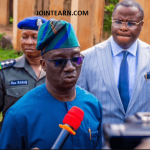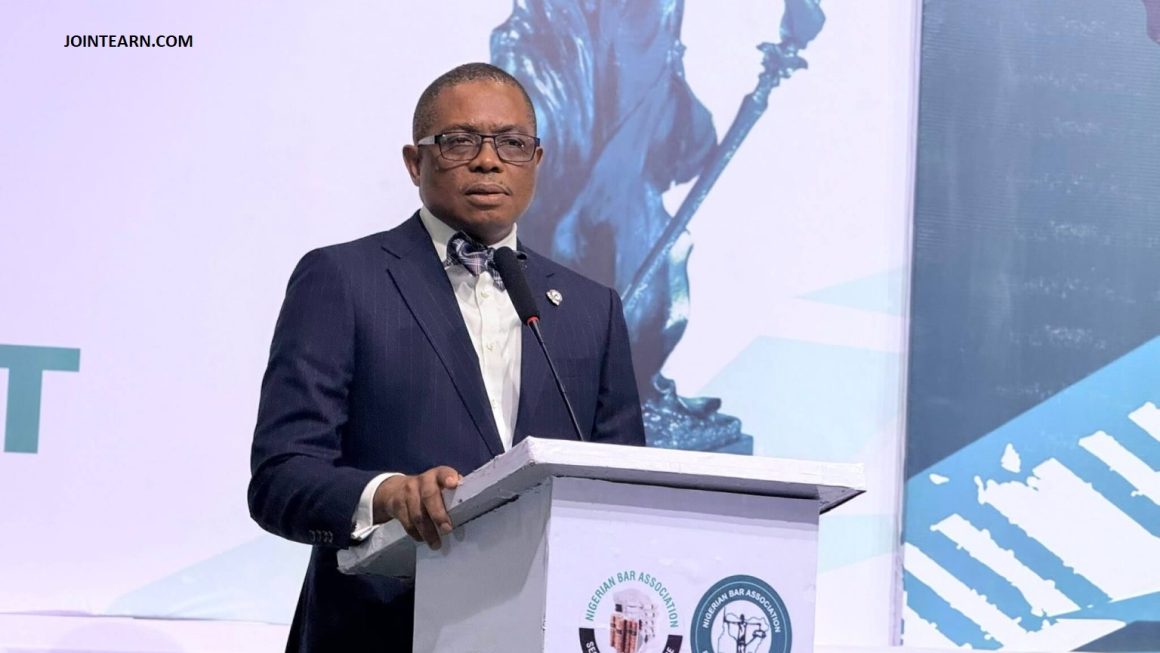The Governor of Oyo State, Seyi Makinde, has once again emphasized the critical need for visionary and competent leadership to drive Nigeria’s economic prosperity and social development. Speaking at a recent event, Makinde reiterated his belief that the country’s future rests on the shoulders of leaders who can navigate its challenges with integrity, accountability, and a clear focus on the welfare of its citizens.
Makinde, known for his progressive policies and commitment to improving governance in Oyo State, shared his perspective on how the right leadership could transform Nigeria from a country rich in resources but plagued by poverty, unemployment, and underdevelopment into a thriving and prosperous nation. He stressed that the role of leaders in shaping Nigeria’s future cannot be overstated, and the country’s potential can only be unlocked through a collective effort driven by strong, honest, and effective leadership.
The State of Nigeria’s Economy
In his address, Governor Makinde highlighted the current state of Nigeria’s economy, which faces significant challenges such as inflation, a high unemployment rate, inadequate infrastructure, and insecurity. He acknowledged that these issues have hindered the nation’s growth, despite its immense potential. The governor noted that while Nigeria is one of Africa’s largest economies, it remains far from achieving its full potential due to systemic inefficiencies, poor governance, and the failure to properly harness its resources for the benefit of the people.
“The situation in Nigeria today reflects a country that has struggled with leadership crises for decades,” Makinde said. “Despite our wealth of human and natural resources, we continue to face challenges that have held us back from realizing the dreams of our forebears. The solution lies in the caliber of leaders we elect to guide us. We must not allow the mismanagement of our resources to continue.”
Leadership as the Key to National Growth
For Makinde, leadership is the cornerstone of any successful society. He expressed the view that the right leadership can unlock opportunities, foster innovation, and empower citizens to contribute to the growth of the nation. He also emphasized that such leadership must be rooted in transparency, accountability, and a commitment to the well-being of all Nigerians, not just a select few.
He further noted that Nigeria’s leadership crisis has often stemmed from a lack of foresight and self-interest among politicians. According to Makinde, effective leadership must go beyond party lines and should prioritize the needs of the people above personal or political gains. He cited the ongoing struggles within the Nigerian government and political structure as a testament to the negative impact of poor leadership on the country’s prosperity.
“Leadership is about putting people first. When we have leaders who understand the needs of their people, who can make decisions based on facts and the realities on the ground, then we will begin to see the changes that we all desire,” Makinde said. “Nigeria needs leaders who will act in the best interest of the country and not just in their own interests.”
The Role of Governance at the State Level
Governor Makinde used his own experience as governor of Oyo State to illustrate the importance of leadership at the state level. Since taking office, Makinde has focused on improving infrastructure, enhancing educational standards, and creating job opportunities for the youth. His administration has also prioritized security and healthcare as key areas for development.
Through his policies, Makinde has demonstrated how good governance at the state level can yield tangible results. For instance, the state government has invested in several infrastructural projects, such as the rehabilitation of roads, the construction of modern schools, and the expansion of healthcare facilities. These initiatives, he believes, could serve as a model for other states and the federal government to follow in the quest for national progress.
“Good leadership begins at the grassroots level,” Makinde said. “In Oyo State, we have focused on creating a foundation for the future, one that is built on sustainable policies that will outlast any administration. The lessons learned here can be replicated on a national level to create a prosperous Nigeria.”
He also pointed to the importance of engaging citizens in the governance process. According to Makinde, the people must feel empowered to hold their leaders accountable. Public participation in governance is vital to ensuring that leaders stay focused on their promises and work towards achieving the collective goals of the nation.
Challenges Facing Nigeria and the Path Forward
While Makinde’s message was one of hope and optimism, he did not shy away from acknowledging the deep-rooted challenges Nigeria faces in terms of governance. He pointed to the persistence of corruption, the lack of political will to tackle systemic problems, and the growing disillusionment among the youth as barriers to progress.
One of the most pressing challenges, according to Makinde, is the need for political reforms that will create a more transparent and accountable system. He also called for a shift in the way politics is practiced in Nigeria, urging political parties to prioritize the selection of leaders based on competence rather than ethnicity or political affiliation.
“The youth of this nation are the future, and they must be given the opportunity to lead. We need to reform our political system and ensure that only the most competent individuals rise to the top,” Makinde said.
He also emphasized the need for collaboration between federal and state governments to address Nigeria’s security challenges, particularly the ongoing insurgencies and banditry in various parts of the country. In his view, a cohesive, united leadership structure is essential for restoring peace and security to the nation.
The Role of Nigerians in Shaping the Future
In his conclusion, Makinde urged Nigerians to be proactive in demanding good governance and holding their leaders accountable. He stressed that every citizen has a role to play in shaping the future of the country, whether by voting, participating in civic activities, or speaking out against injustices.
“Nigeria’s prosperity is not solely dependent on the leaders we choose, but also on the collective actions of all Nigerians,” Makinde said. “We must all be willing to work together to build the Nigeria we deserve.”
Makinde’s statement serves as a powerful reminder that, while leadership is key to national success, the responsibility also falls on the citizens to ensure that their voices are heard and that those in power are held accountable for their actions.












